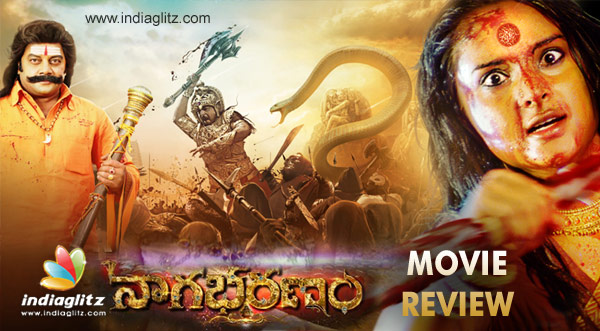
'Nagabharanam' comes in for those who like the old-school charm of Kodi Ramakrishna-type of story-telling. Here we analyze the epic-fantasy:
Story:
As stories of Kodi Ramakrishna go, this one comes with formula plus a late Kannada superstar stirring the Telugu audience out of their any superficial engrossment with the proceedings. Down the Yugas, a 'kalasham' has been protected by the descendants of one Shivayya from asuric forces's attempts to get hold of it. It possesses the powers of 'devatas', who have saved their capabilities in it for the 'grahanam' day.
In today's time, an over-ambitious business tycoon (played by Mukul Dev) has his eyes set on the 'kalasham', which is in the possession of a museum. None but he knows its significance and history, but he has to defeat Royal Cobra, a musical troupe which could win it as a prize in a competition. The tycoon schemes to win Royal Cobra's lead Nag Charan (played by Dignath) on to his side. When the hero refuses to be bought, the villain resorts to savagery.
Least does the villain know that Manasa (played by Ramya), a member of the musical troupe, has a divine agenda and supernatural powers.
Analysis:
A Sandalwood film (dubbed version of 'Nagrahavu'), this one is deliberately loud and expectedly off-colour. If the rom-com portions are off-track (they being erratic and confusing, made possible by Ramya's expressions and perhaps the BGM too), the villainy is reduced to a caricature at the first opportunity. Imagine a billionaire who wants to lay his evil hands on an all-powerful artifact squandering away opportunities with buffoons in tandem. 'Tattoo meeda promise vesi cheppu,' the cartoonish villain with an exaggerated mien says at one place.
As if all this was not enough, the hero with the looks and style of a villain, Nag Charan (Dignath), is an item boy who comes and goes when it's time for a song. This is in a film where the backdrop of music presented an opportunity to take the narration to the next level.
A higher power making an appearance in the climax in films of this genre is a given. Thus, late Vishnu Vardhan getting graphically re-created is not forced. The CG work can be counted as a merit of the film, so also a few tunes of Gurukiran, albeit unnecessarily lost in din.
The film could have gotten it better when it comes to dialogues, which are plain and unimaginative. The maker of such films as 'Arundhati' probably was confused about delivering the goods on nativity.
Ramya, the main member of the cast, is failed by a screenplay that is complacent about glorifying her in the flashback and that is pedestrian toward presenting her in the present. She is indulged more in the scenes where she pulls the hero's legs and modulates her voice suspiciously (cinematic liberty at its outdated self), while in taking on the villains one after one, the character is given a short-shrift. Ramya nevertheless shines through such a screenplay, especially for those used to watch her (which the Telugu audience are not).
As for the others, Sai Kumar makes a neat cameo. Mukul Dev and Ravi Kale suffer from daffy projections. Dignath just doesn't pass muster.
The technical departments don't complement the director's efforts in terms of visuals. The BGM never tires of blowing its own trumpet. The cinematography and editing fall flat. The special effects (by Makutha) are a relief in certain portions, especially the scene where an aghora walks up to a tapasvi and flagellates himself.
Verdict: An epic-fantasy with a well-told flashback, complete with mythical supernatural powers, heroic action, sentiments of a tribe, the promise of the divine, and action. Better performances and technical output could have helped. The song n' dance interludes could have been a blessing had the musical backdrop been properly leveraged.
Rating: 2.50 / 5.0
Showcase your talent to millions!!
Telugu Movie Reviews
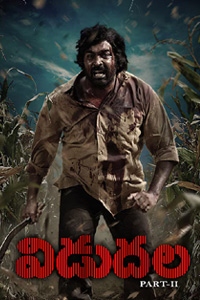 Vidudala Part-2
Vidudala Part-2
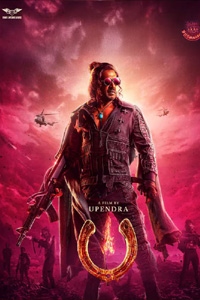 UI
UI
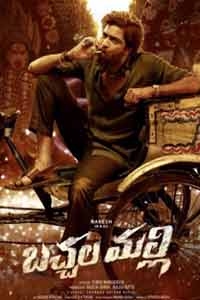 Bachhala Malli
Bachhala Malli
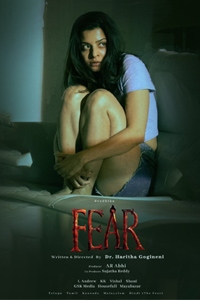 Fear
Fear
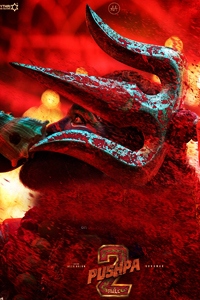 Pushpa 2: The Rule
Pushpa 2: The Rule
 Devaki Nandana Vasudeva
Devaki Nandana Vasudeva




Comments